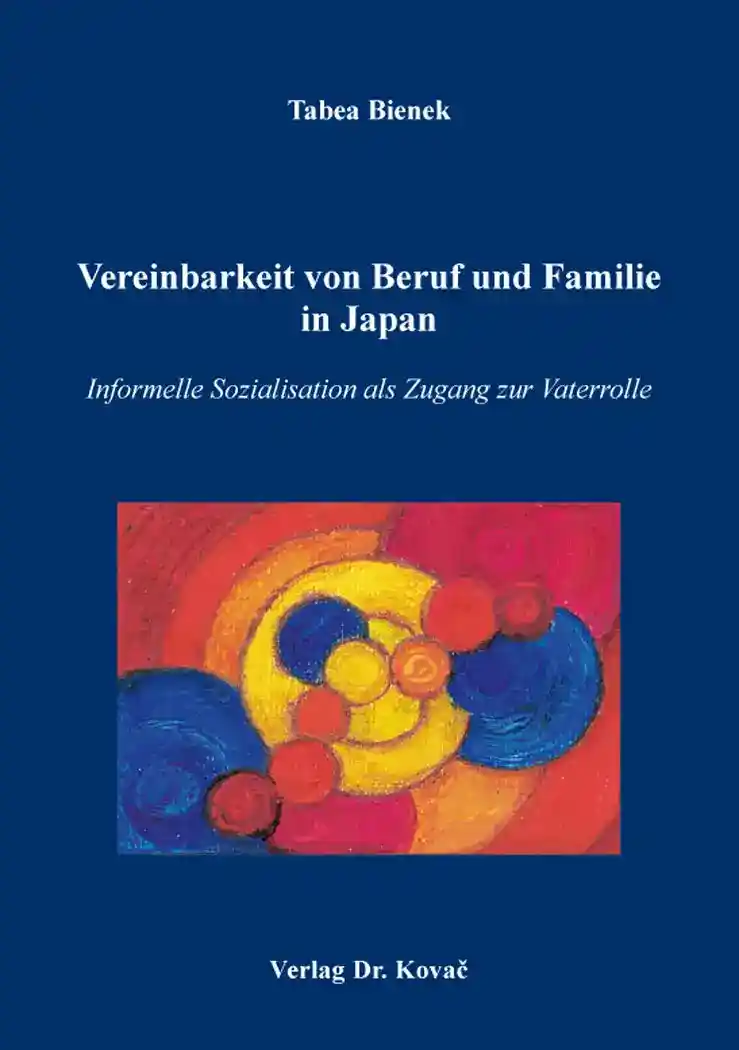Tabea BienekVereinbarkeit von Beruf und Familie in Japan
Informelle Sozialisation als Zugang zur Vaterrolle
SOCIALIA – Studienreihe soziologische Forschungsergebnisse, volume 153
Hamburg 2019, 320 pages
ISBN 978-3-339-11018-3 (print) |ISBN 978-3-339-11019-0 (eBook)
About this book deutschenglish
The decline in the labor force caused by the ongoing demographic change is increasingly placing the sociological issue of Work-Life Balance (WLB) in the focus of politics and economy. In media coverage, the term WLB is often used synonymously in the sense of compatibility of work and family, but it refers in particular to the challenges mothers face in this field. However, the fact that fathers are similarly affected in this dilemma has largely been ignored in research. The present work contributes to the debate at this point and focuses on the perspective of fathers in Japan. By answering in which manner and by which agents of socialisation fatherhood is formed, the focus of this study is on the Japanese father’s role as well as options for designing this role during the transition to fatherhood, against the background of paternal socialisation.
To counter the declining labor force potential, the Japanese government developed an ikumen campaign in 2010, which rewards working fathers who wish to participate in their child's education. However, this formal socialization of fathers, which is carried out jointly with the Japanese economy, has so far shown little effect. The thesis of this dissertation is therefore that initiatives like these are based on the false premise of a regulation from above promoting effective social change. However, intrinsic motivators for fathers, which are also reflected in the desire for cohesion and identity formation among peers, are significant in the designing process of the father’s roles. For this reason, the present study pays particular attention to a civil society organization called NPO Fathering Japan. Based on qualitative data collected from the period of February 2012 to June 2014, field work, document analysis and computer-mediated surveys show how civil society organizations primarily have an informal effect on the designing process of the Japanese father’s role. The present study illustrates the approach of such informal agents of socialization. Through their community organized, but otherwise informal and open approach informal agents of socialization show the potential to be actively selected as an effective agent of socialization by fathers. Agent’s actions therefore lead to a satisfactory compatibility of work and family for fathers through giving individual options in designing the father's role. The present work emphasizes the range of informal socialization options and thus contributes to questions concerning the WLB of fathers in Japan as well as to socialization research in the adult range.
Keywords
JapanJapanologieNPO FatheringNPOsSozialisationSoziologieVaterrolleVereinbarkeit von Beruf und FamilieIhr Werk im Verlag Dr. Kovač

Möchten Sie Ihre wissenschaftliche Arbeit publizieren? Erfahren Sie mehr über unsere günstigen Konditionen und unseren Service für Autorinnen und Autoren.
